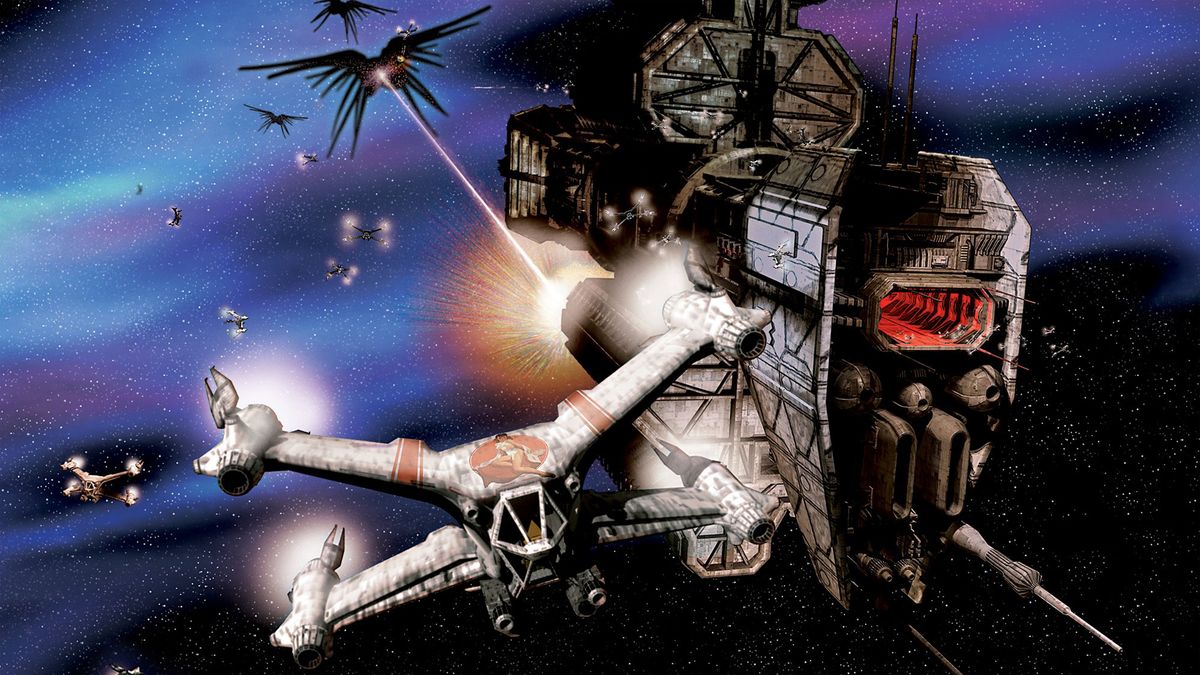Is Babylon 5 secretly the most influential TV show of the past 25 years?
How the epic space opera laid down the blueprint for TV’s golden age

Many TV historians will tell you that our current golden age of television began with The Sopranos, The West Wing and The Wire. Those TV historians either weren’t paying attention, or have a large blind spot for space opera – because Babylon 5 was laying down the prestige TV blueprint half a decade before Tony Soprano whacked his first mobster.
Even now, it’s too easy to dismiss Babylon 5 as a less-glossy Star Trek rip-off, with ambitious but limited CG effects that never looked photo-real, and felt dated by the turn of the 21st century. However, this long-running story of a space station caught in the middle of multiple interstellar conflicts wasn’t fashionable when it first aired from 1993 to 1998 – it was even the butt of a joke in Spaced.
While Babylon 5 proclaimed itself the last galaxy’s best hope for peace, only self-confessed geeks would rank it among the most important shows of the past 25 years. But that may owe more to snobbishness about the fact it’s set in outer space – with many of its actors buried under weird alien prosthetics – than its quality. There’s also a chance it came too early to be properly noticed. After all, it wasn’t until the rebooted Battlestar Galactica appeared a decade later – a show that owes a considerable debt to Babylon 5 – that a space-set show really got critics talking.
And yet the show is like a checklist for everything we now take for granted in prestige television, because Babylon 5’s influence stretches way beyond the likes of BSG, The Expanse and the reinvented fleet of Star Trek shows on Paramount Plus. The fact it's available to watch on HBO Max in the US offers the perfect opportunity to reassess this groundbreaking piece of ’90s TV.
A dream given form
If most TV viewers had no idea what a showrunner was back in the ’90s, even fewer could name one. Only superstar producers such as Hill Street Blues and NYPD Blue creator Steven Bochco were big enough to occasionally eclipse their brands. However, the name of J Michael Straczynski was all over Babylon 5, as synonymous with the show as Minbari, Narn and Vorlons – just as much as The West Wing was Aaron Sorkin’s creation or The Sopranos David Chase’s, Babylon 5 was his. Arguably more so, in fact, seeing as he wrote 92 of the show’s 110 episodes, including the entirety of seasons 3 and 4.
Babylon 5 was an auteur’s vision on an epic scale. On the rare occasions guest writers were brought in, they were often genre legends such as Neil Gaiman, Harlan Ellison and regular Star Trek writer DC Fontana – this show was never scared to embrace the harder edges of science fiction. And just as would later become the norm with showrunners such as Russell T Davies on Doctor Who or Dave Filoni on The Clone Wars, Straczynski was the public face of his show, becoming one of the first writers to talk directly to the fanbase via the internet.
A veteran of ’80s cartoons such as She-Ra: Princess of Power, The Real Ghostbusters, and Jayce and the Wheeled Warriors, Straczynski always had big plans for Babylon 5. He set out to tell a story taking in space battles, political intrigue, epic mythology and more, and wanted to do it over the course of five years.
Get daily insight, inspiration and deals in your inbox
Sign up for breaking news, reviews, opinion, top tech deals, and more.
That may not feel unusual now, when shows such as Breaking Bad, Lost and even comedies such as Schitt’s Creek make a big thing of spreading their stories over multiple seasons. But in the mid-’90s, the Babylon 5 approach was seriously radical. Most of the TV of the era was built on standalone episodes, with serialization kept to a minimum to ensure episodes could be watched in any order once they ended up in syndication. That Babylon 5 should so brazenly break the mould was a big shock to the system for ’90s viewers
Yet it’s an approach that made Babylon 5 stand out from the crowd. After a first season that largely followed a Star Trek-style story-of-the week structure – it’s interesting to note that the show ran concurrently with Trek’s own space station adventures on Deep Space Nine – it was soon diving headlong into its multiple complex narrative arcs, populated with memorable, morally ambiguous characters who were constantly evolving. If there were any Federation-style utopian ideals at play, they were kept well hidden.

Ahead of its time
Much like Game of Thrones more than a decade later, Babylon 5 was never content to tell just one story. The show often devoted a run of episodes to dealing with a particular subject, tying a (temporary) bow around it, and then moving onto something else – although you always knew that a dangling plot thread wouldn’t stay unresolved forever. So over the course of a season you might see mini-arcs about Mars’s bid for independence from Earth, the Centauri invading the Narn homeworld, and the all-encompassing war between the Shadows and the Vorlons, before they were revisited the following year – or later. It was ‘Westeros in space’ before George RR Martin had even published his first A Song of Ice and Fire novel, a show that rewarded viewers who tuned in for every installment. Babylon 5 was a show purpose-built for streaming and binge-viewing, trapped in the era of broadcast and cable.
In fact, Babylon 5’s seasons were so intricately plotted, when – with the show threatened with cancellation – season 4 was crammed with conclusions to ongoing arcs, season 5 was left seriously short of material. It felt more like an overstretched postscript than a bona fide season.
But by then Babylon 5 had already laid down the formula that most of the biggest TV shows of the 21st century would follow. If The Sopranos was the catalyst that made the world realize that TV could be just as relevant as movies, Babylon 5 deserves credit for being the test pilot that carried the medium into new frontiers. It’s only taken a couple of decades of hindsight to show how influential it was.
You can watch the entirety of Babylon 5 (remastered) on HBO Max.
Richard is a freelance journalist specialising in movies and TV, primarily of the sci-fi and fantasy variety. An early encounter with a certain galaxy far, far away started a lifelong love affair with outer space, and these days Richard's happiest geeking out about Star Wars, Star Trek, Marvel and other long-running pop culture franchises. In a previous life he was editor of legendary sci-fi and fantasy magazine SFX, where he got to interview many of the biggest names in the business – though he'll always have a soft spot for Jeff Goldblum who (somewhat bizarrely) thought Richard's name was Winter.

























